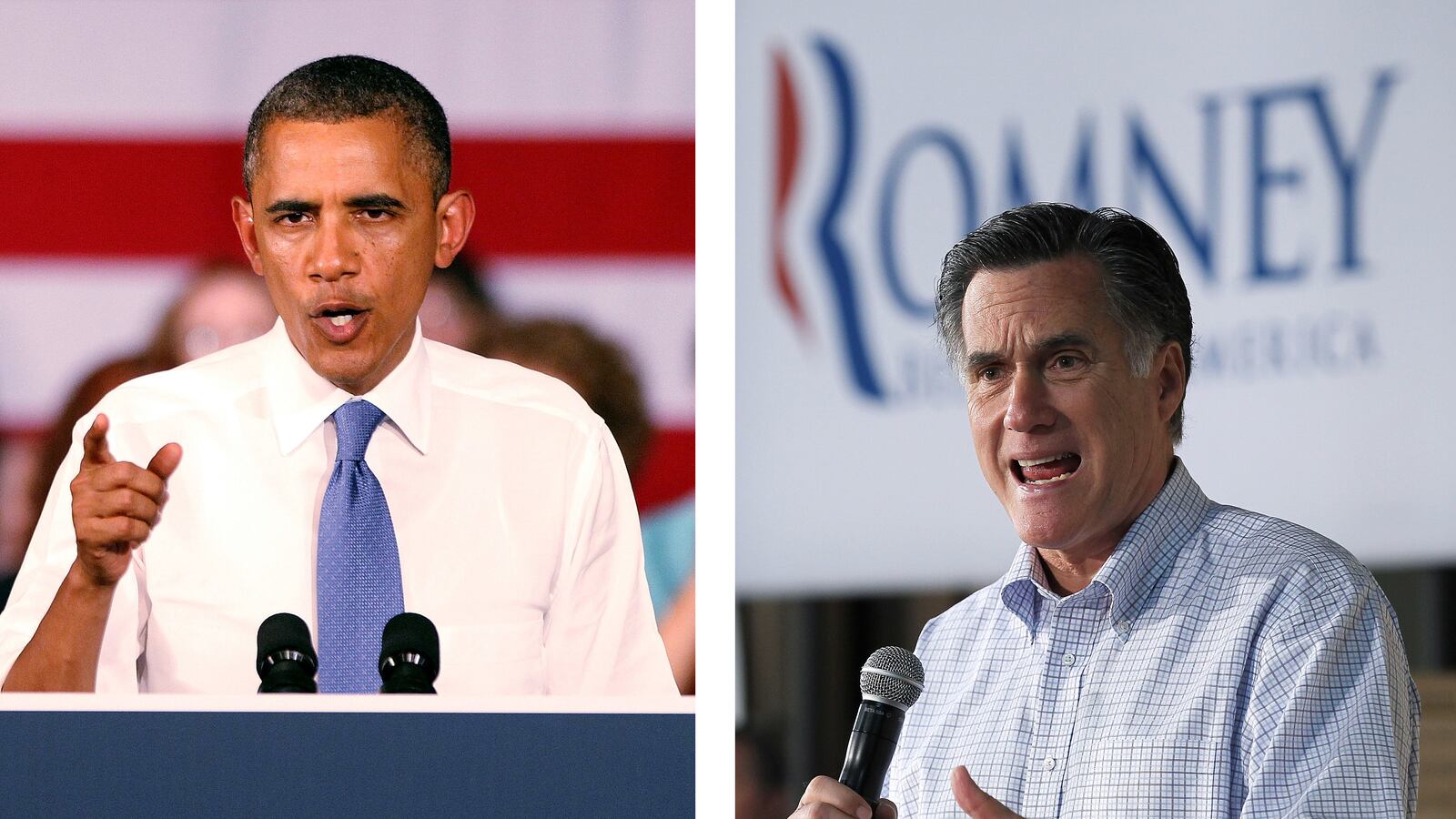
In his column today, Michael Tomasky notes the stakes in 2012: this election will become a vindication of the economic policies of whoever happens to win.
With the economy just starting to pick up steam after years in the doldrums, things might be all teed up for the winner of the election to preside over a rebounding and robust economy. Whoever wins will get the credit and reap the benefit. This is no small thing. In fact it’s a very huge thing. The winner may very well go down in history as the man who led the country out of the greatest economic crisis in eight decades.
If it’s Obama, that validates the stimulus, the deficit—even Obamacare, which revolutionizes one sixth of the economy. That old-time FDR religion, Democrats could claim, still works. “Which party sent this country to the brink of ruin in 2008, and which party pulled our chestnuts out of the fire?” could be a Democratic rallying cry until about the 2040s.
And if it’s Romney? Well, that’ll be one lucky man.
To confirm Michael's point about how good results indicate whatever the incumbent happens to have done, here's a maybe useful Canadian comparison.
Canada, as almost all Canadians are exquisitely aware, has escaped the Great Recession more lightly than almost any other of the big rich democracies. The political result is striking. There have been 14 federal and provincial elections in Canada since Lehman Brothers failed in the fall of 2008. Incumbents have won re-election in all but three of the elections of them. It didn't matter whether the incumbents were socialist NDP (Manitoba, 2011) or leftish Liberals (Quebec, 2008) or rightish Liberals (British Columbia, 2009) or soft Conservatives (Alberta 2012) or tough Conservatives (federal elections, 2008 and 2011) or sui generis Yukon and Saskatchewan party governments. They all won, typically with expanded majorities.
The three exceptions to the rule all had some special local circumstance to explain them: student disturbances in Quebec 2012, a dispute over the sale of the local power company to Hydro Quebec in New Brunswick 2010, and a dispute over the allocation of oil and gas revenues in Nova Scotia in 2009.
Voters vote for results, and they don't seem to ask too many questions about how or why the results were obtained.





